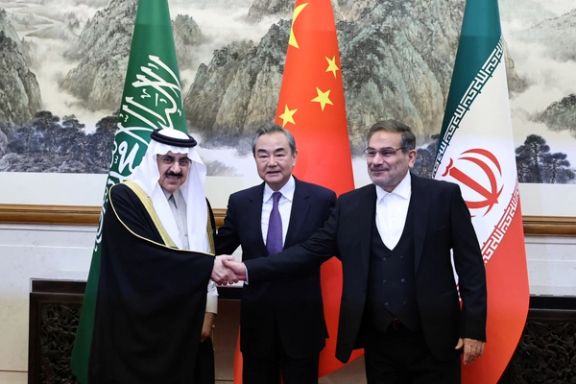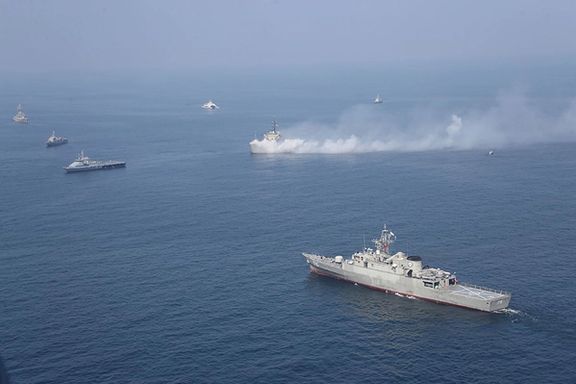Iran-Saudi-Chinese Deal Can Encroach On US Regional Policy

China, Russia and Iran have started maritime drills in the Gulf of Oman, less than a week after Tehran and Riyadh agreed to restore ties with Chinese mediation.

China, Russia and Iran have started maritime drills in the Gulf of Oman, less than a week after Tehran and Riyadh agreed to restore ties with Chinese mediation.
China’s defense ministry announced Wednesday that the drills will last from March 15-19 and “deepen practical cooperation among the navies of participating countries.”
Although it is not the first time the three countries hold joint naval drills in the Gulf of Oman and the Indian Ocean, the announcement coming on the heals of the Saudi-Iranian rapprochement might be a signal by Beijing about its intentions to expand influence in the region.
The drills also coincide with reports that China intends to hold a summit of Arab countries and Iran later this year. The Wall Street Journal quoted diplomatic sources that when Chinese President Xi Jinping visited Saudi Arabia for a regional summit with Persian Gulf Arab states in December, he proposed a high-level gathering of the Gulf Cooperation Council members and Iran in Beijing in 2023.
Most analysts agree that restoration of diplomatic ties between Iran and Saudi Arabia does not mean an overnight resolution to serious differences in their complicated relations. US officials have been quoted as being skeptical about Tehran delivering on what it has promised Riyadh, which is probably pursuing limited goals of reducing tensions rather than forging close relations with Tehran.
But most interestingly, Reuters briefly quoted the Saudi finance minister Wednesday as saying that there are a lot of opportunities for investments in Iran and he does not see an impediment as long as terms of agreements are respected by Tehran.

This is going much farther than a cordial resumption of diplomatic ties, and it would mean that the Saudis are willing to throw a lifeline to the beleaguered clerical rulers in Tehran who face a bankrupted economy.
Any Saudi economic dealing with Iran would also directly undercut US sanctions imposed to pressure Tehran, if not violating them outright. But dangling the prospect of foreign investment that Iran has no chance of securing in the current situation, might be a powerful tool.
There have been speculations that Beijing might try to solve the issue of Iran’s nuclear program that has extremely worried the Saudis, and eluded the Americans. In such a scenario, when tens of billion of dollars in Iranian assets are blocked worldwide, the prospect of Saudi investments could be a powerful lever to cajole Tehran to agree to a Chinese brokered agreement limiting its nuclear program.
Nevertheless, at this juncture, a regional rapprochement seems to be moving ahead fast. Nour News, a website in Tehran close to the national security council reported Wednesday that Iran's Supreme National Security Council secretary Ali Shamkhani will visit the United Arab Emirates on Thursday.
"Shamkhani will travel to Abu Dhabi on Thursday in response to an official invitation by his Emirati counterpart Sheikh Tahnoun bin Zayed Al Nahyan to discuss bilateral, regional, and international issues," Nour News said.
"Top economic, banking and security officials will accompany the Supreme National Security Council secretary to the UAE," it added.
Improvement of not only diplomatic but economic relations between GCC members and Iran could be a signal that plans to expand and strengthen the Abraham Accords between Israel, the United States and Arab countries will take the back seat.
This would also be a serious blow to US ‘maximum pressure’ strategy against Iran to push it toward a nuclear agreement that would perhaps include other provisions to limit Iran’s damaging activities in the region. If Saudis can tame Tehran with their own methods, the US role will be diminished as a security guarantor for the Kingdom.